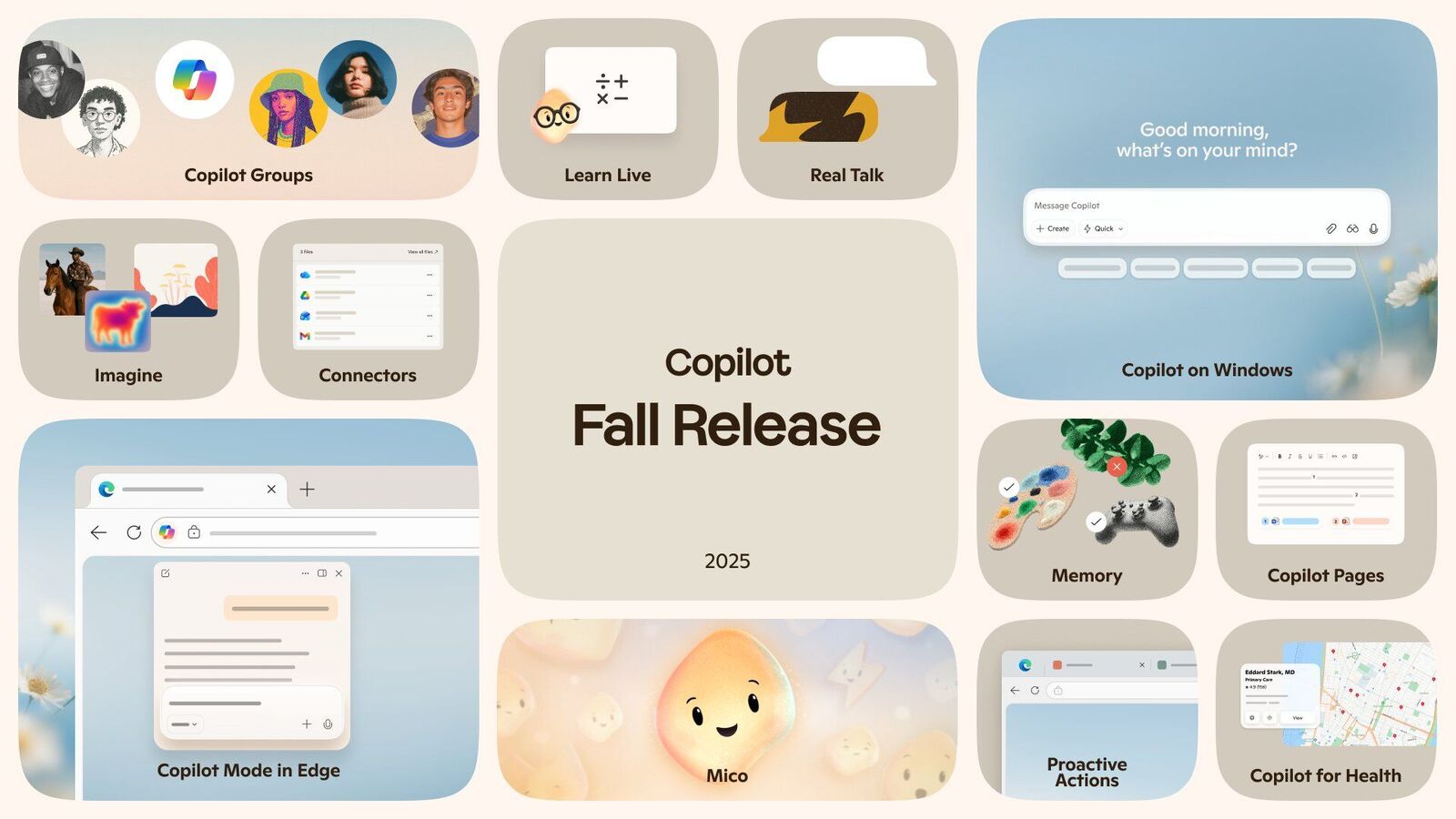Microsoft on Thursday rolled out a significant update to its AI assistant, Copilot, as part of its Fall Update event, introducing new features designed to make the chatbot more personal, intelligent and interactive. The update brings a new animated character called Mico, an improved Copilot mode in Microsoft Edge, long-term memory capabilities and integration with third-party platforms such as Google Drive and Gmail. A More Personal Copilot: Meet Mico At the center of the update is Mico, a new animated avatar that gives Copilot a visual identity for the first time. Short for Microsoft Copilot, Mico responds with facial expressions, gestures and color changes during voice chats, aiming to make interactions feel more natural and empathetic. Microsoft described the feature as a step to make AI “more supportive and relatable.” At the center of the update is Mico, a new animated avatar that gives Copilot a visual identity for the first time. Short for Microsoft Copilot, Mico responds with facial expressions, gestures and color changes during voice chats, aiming to make interactions feel more natural and empathetic. ‘Real Talk’ and Group Chats A new ‘Real Talk’ mode has been added to encourage more engaging discussions. Instead of always agreeing with users, Copilot will now gently challenge assumptions and adjust its tone to match conversational styles, helping users think more critically. Another social feature, Groups, turns Copilot into a collaborative workspace. Users can share conversation links with up to 32 participants, allowing them to brainstorm together, vote and divide tasks while the chatbot summarizes discussions and keeps the group aligned. Copilot Gets Long-Term Memory The Fall Update introduces long-term memory, which enables Copilot to remember key user details and preferences for future interactions. This memory can be viewed, edited or deleted at any time under the Memory & Personalization settings. The AI can also refer to past conversations, helping users maintain continuity without rehashing past topics. Integration with third-party data hubs Microsoft has added shared memory via connections, enabling Copilot to access and search data on popular platforms such as OneDrive, Outlook, Gmail, Google Drive and Google Calendar. This integration helps users track documents, emails and events seamlessly from within Copilot. Smarter health and learning tools The new Copilot for Health grounds medical queries in verified information from sources such as Harvard Health. It can even recommend suitable doctors based on location, specialization and language preferences. For students and learners, Learn Live brings an educational touch, using a Socratic, voice-activated approach that guides users through interactive lessons, visual explanations and conceptual discussions rather than simply providing answers. Edge browser gets agency capabilities In Microsoft Edge, a new Copilot mode allows the AI to analyze open tabs, summarize content and even perform actions such as booking hotels or filling out forms, thanks to its new agent capabilities. Another feature, Journeys, automatically organizes browsing sessions by topic, allowing users to visit research or projects more efficiently. Microsoft emphasized that both Edge features include subscription privacy controls. Unified Copilot Search Finally, Copilot Search now merges AI-generated insights with traditional web results, displaying both in a single interface with clear source references.
Microsoft introduces Mico avatar, long-term memory and health features to Copilot: Everything you need to know
